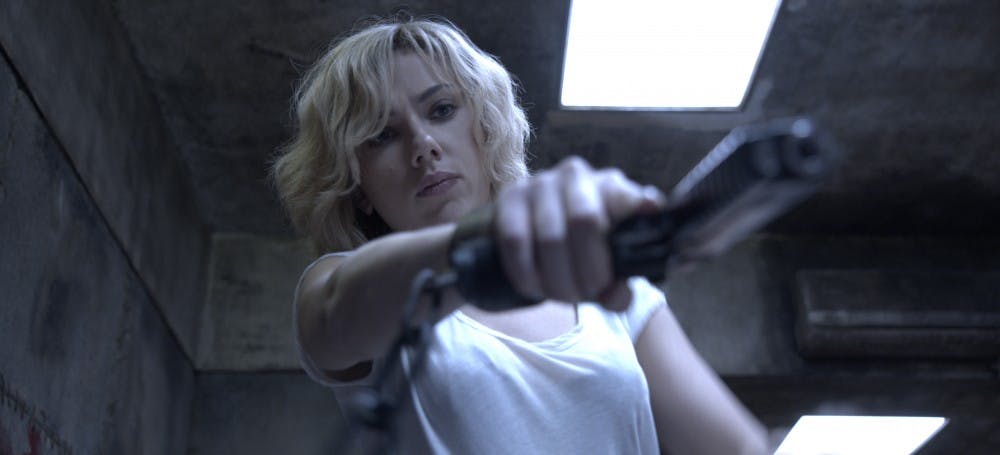Luc Besson, known for his sci-fi classic “The Fifth Element,” attempts to make another hit with his latest work, “Lucy.” Besson’s new film markets itself as being larger than life starting with its tagline. “The average person uses 10 percent of their brain capacity. Imagine what she can do with 100 percent.” This baits the viewer into speculating the possibilities of infinite knowledge. But in “Lucy,” more knowledge comes with infinitely more problems. “Lucy” is a science fiction movie that attempts to be experimental while still trying to satisfy the rudimentary necessities of an action film. It tries to do too much at once and ends up accomplishing nothing at all.
The film is named after its protagonist, Lucy, (Scarlett Johansson, “Captain America: The Winter Soldier”), a student in Taipei who befriends the wrong guy in a club and is forced to become a drug mule of a potent chemical known as CPH4. It leaks into her system and transforms her from an unfortunate victim to a deadly force to be reckoned with, all in the span of 24 hours. Not only does the chemical make her stronger and smarter, she is able to control people and matter with only her mind. Lucy goes to find a scientist who studies evolution and cerebral capacity to pass on the knowledge she is acquiring.
“Lucy” wastes its potential to provide audiences with a powerful, independent heroine and dehumanizes Johansson’s character as she becomes stronger, as if the only way a woman can be autonomous is if she loses her humanity. Other than being hard to relate to, Lucy is so powerful by the end of the film that it’s impossible for her to get hurt. Although the film counts down the amount of brain capacity Lucy has left to use with title cards throughout, there is no sense of urgency. We are left to question why she is even looking for help in the first place.
Apart from the mild action sequences of Lucy getting to the professor, the rest of the film is very tame. The philosophical musings of Professor Norman (played by a confused Morgan Freeman) come off as goofy rather than profound. Clips of cells dividing to animals mating accompany his speeches, adding an experimental twist to the film. While the visuals are stunning, they add little to the plot. Asking more questions than it ever gives answers, no one in the movie knows what’s going on except Lucy, but she never cares to let anyone in on the secret.
If having the ability to access the full capacity of your brain means having to go through what Johansson’s character does, it may be more appealing to just stick with the 10 percent of the brain that the movie claims humans use. While “Lucy” may be not be as straightforward as expected, Besson produces an enveloping sensory experience rather than a cohesive story. “Lucy” tries to be too smart for its own good and ends up confusing itself, and the audience, before it ever figures out what it’s trying to do.
“Lucy” (R, 89 minutes) is now playing at local D.C. theaters including AMC Mazza Gallerie and AMC Georgetown.





